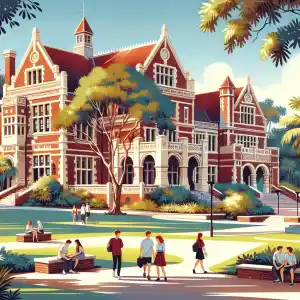Refugee visas (subclass 200, 201, 203 and 204)
Refugee visas (subclass 200, 201, 203 and 204)
With the Refugee visas (subclass 200, 201, 203 and 204), individuals who are facing persecution in their home country can seek refuge in Australia. These visas offer the opportunity to live, work, and study indefinitely in Australia for both the applicants and their families. This article provides detailed information about the process, requirements, and benefits of these visas.
Process
Applying for a Refugee visa requires individuals to meet certain criteria. It is usually granted to people who have been referred to the Australian government by the United Nations High Commissioner for Refugees (UNHCR) for resettlement. The process can take several months or even years due to the high number of applications received each year.
Requirements
When applying for a Refugee visa, there are several important factors to consider:
1. Entry Date and Australian Laws
Applicants must enter Australia by the date specified on their visa and must adhere to all Australian laws.
2. Health and Character Requirements
Applicants and their family members must meet the health and character requirements set by the Australian government. This includes undergoing medical examinations, providing proof of identity, and demonstrating good character.
3. Family Members
Applicants can include their partner, dependent children, and other relatives who are dependents in their visa application. Each family member must meet the health and character requirements as well.
4. Cost
There is no visa application charge for the Refugee visas (subclass 200, 201, 203 and 204). The Australian government covers the costs of medical examinations and travel for the visa holder and their family.
Benefits
Once granted a Refugee visa, applicants and their families enjoy several benefits:
1. Permanent Residence
The Refugee visa allows individuals to stay in Australia permanently, providing a safe and secure environment.
2. Work and Study
Visa holders have the right to work and study in Australia, opening up opportunities for employment and education.
3. Healthcare and Social Services
Visa holders can enroll in Australia's public healthcare scheme, Medicare, and access other social services and benefits available to permanent residents.
4. Family Reunion
Visa holders can propose family members for permanent residence, allowing them to be reunited with their loved ones in Australia.
5. Travel
Visa holders can travel to and from Australia for a period of 5 years. After this period, they will need to obtain a Resident Return visa to re-enter Australia as a permanent resident.
6. Citizenship
If eligible, visa holders can apply for Australian citizenship after a certain period of time. This provides them with the full rights and responsibilities of being an Australian citizen.
7. English Language Classes
Visa holders have the opportunity to attend free English language classes through the Adult Migrant English Program, helping them to integrate and communicate effectively in Australian society.
Conclusion
The Refugee visas (subclass 200, 201, 203 and 204) offer a lifeline to individuals facing persecution in their home countries. These visas provide the opportunity for a new beginning in Australia, allowing applicants and their families to live, work, and study permanently in a safe and welcoming environment. The application process may be lengthy, but the benefits are invaluable for those seeking refuge and a better future.











